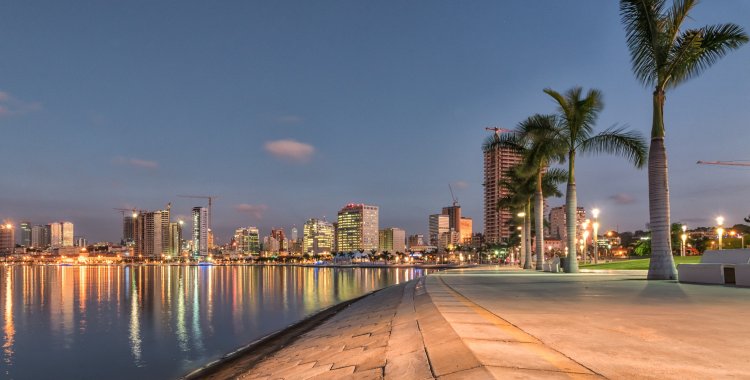"We have to make sure that we diversify our economy and break our dependence on oil, growing in an inclusive way, with more jobs, more tax collection, and increase our ability to ask for fewer lines of financing, even if it's at the concessional level, and if that happens interest rates go down," Vera Daves de Sousa said.
During a conversation with World Bank President David Malpass, as part of the Spring Meetings of the bank and the International Monetary Fund, the Finance Minister opened the discussion in the panel on 'Rethinking Debt: Financing the Future in a Crisis' and admitted to enormous economic difficulties.
"We were suffering from the consequences of the pandemic, we were at a difficult starting point, with recessions for so many years, and the pandemic came to worsen the economy, which is very dependent on oil, and so everything that affects oil affects us very hard," Vera Daves de Sousa said.
Recalling the main difficulties of recent years, in which Angola faced negative economic growth, with the IMF predicting it will grow 0.4 percent this year and 2.4 percent in 2022, the minister said it was necessary to "work on different fronts," listing reforms in revenue, expenditure and debt, and stressing the "important help from the World Bank, IMF and the Debt Suspension Initiative (DSSI), of the G20, extended today for the last time until the end of this year.
"This was very useful and we spoke with the main creditors to find a solution that would allow us to have breathing space in the medium term and free up financial resources to deal with social needs and provide financial support to families," she added.
Asked about the evolution of the amount of debt by the World Bank president, Vera Daves replied that there has been an increase in external debt by $18 billion since 2015, but stressed that "if we look at the total debt, from 2017 to 2020 there is a decrease from $88 billion to $68 billion, which shows that although we still have challenges, we are on the right track."
In addition, she added, there has also been "a 60 percent reduction since 2018 in gross financing needs through the expansion of the tax collection base."
Vera Daves admitted that it is still necessary to "improve the quality of spending and build confidence on macroeconomic indicators and the government's commitment to reforms to ensure that the country's risk perception decreases and interest rates come down, which is important."
The IMF expects Angola to emerge from recession this year by growing 0.4 percent and accelerate growth to 2.4 percent in 2022, also anticipating a reduction in public debt to below 100 percent of GDP next year.







